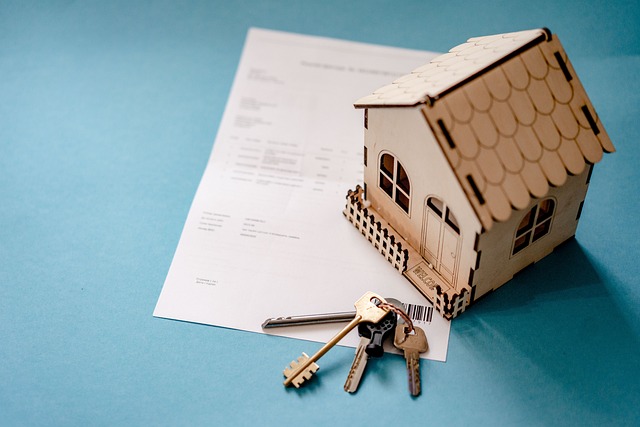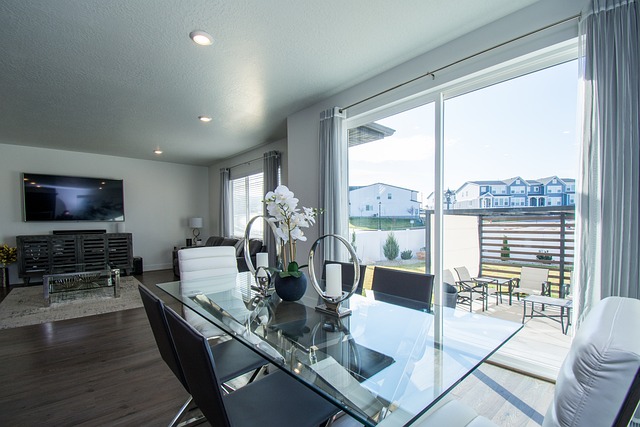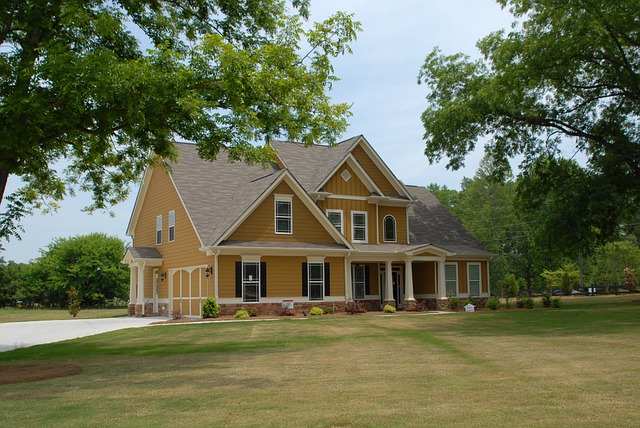In Singapore, eligibility for an Executive Condo (EC) requires applicants to be first-time homeowners or existing HDB flat owners, with at least one Singaporean citizen in the application. Middle-income families can benefit from financial aid through Executive Walled Credits (EWCs), which offset part of the EC cost for affordability. To qualify for an EC loan, applicants must be at least 21 years old and meet income criteria, without owning any properties upon applying. Couples are allowed to own up to two properties, which must be declared. Housing grants are available for EC purchasers, offering significant financial assistance. The resale market for ECs has specific rules, including a Minimum Occupation Period (MOP) of three years and the potential application of a resale levy within ten years from acquisition or after fulfilling the MOP. Prospective buyers must carefully evaluate their eligibility and long-term housing plans, considering the unique resale conditions and financial commitments associated with EC ownership in Singapore's dynamic real estate market.
Considering an Executive Condo (EC) in Singapore? This article delves into the unique offerings of ECs, tailored for middle-income families through the Executive Walled Credits (EWCs) scheme. We’ll explore eligibility for EC ownership, the financial implications of owning versus renting, and the resale market dynamics post Minimum Occupation Period (MOP). From understanding the role of EWCs in housing grants to assessing the pros and cons of living in an EC, this comprehensive guide will equip you with the insights needed to make an informed decision. Eligibility for Executive Condo is a pivotal aspect that potential residents must carefully consider along with other significant factors influencing their choice. Join us as we navigate the nuances of EC living in Singapore’s vibrant housing market.
- Understanding Executive Condos: A Primer on EWCs (Executive Walled Credits) and Their Role in Housing Grants
- Eligibility for Executive Condo Ownership: Who Can Apply and Key Criteria to Consider
- The Pros of Choosing an Executive Condo: A Balanced Housing Option for Middle-Income Families
- Weighing the Cons: Considerations Before Opting for an Executive Condo
- Financial Aspects: Cost Analysis of Owning vs Renting an Executive Condo in Singapore
- Resale and MOP: Navigating the Market and Understanding the Minimum Occupation Period for EWCs
Understanding Executive Condos: A Primer on EWCs (Executive Walled Credits) and Their Role in Housing Grants

Executive Walled Credits, commonly known as EWCs, are a financial instrument designed to assist eligible individuals in Singapore with the purchase of an Executive Condo (EC). These credits play a pivotal role in enhancing the affordability of ECs for those who qualify under the eligibility criteria set forth by the Housing and Development Board (HDB) and the Ministry of National Development. An EC is a hybrid housing option in Singapore, offering the benefits of a private condominium while being accessible to couples or families who might not qualify for a public flat due to higher income ceilings.
To be eligible for an EC, applicants must meet certain criteria. They typically include being first-time flat owners, both parties (if married or in a relationship) earning less than a specified income ceiling, and at least one applicant being a Singapore citizen. EWCs provide additional support by offsetting the price of the EC, making homeownership more attainable for middle-income families. The extent of the subsidy depends on various factors, including the income level of the applicants and the pricing of the EC unit. Prospective buyers should thoroughly assess their eligibility for an Executive Condo and understand how EWCs can be applied to their purchase to make informed decisions about their housing options in Singapore’s vibrant property market.
Eligibility for Executive Condo Ownership: Who Can Apply and Key Criteria to Consider

When considering the purchase of an Executive Condo (EC) in Singapore, understanding the eligibility criteria is paramount for prospective owners. As per the guidelines set by the Singaporean government, applicants must be at least 21 years old and meet the minimum income ceilings to apply for an EC loan from a financial institution. Additionally, applicants should not own any residential property locally or abroad at the time of application. Couples are allowed to own up to two properties before applying for an EC, but these must be declared. Singapore Citizens (SCs) and Permanent Residents (PRs) can apply for an EC together, provided they intend to use the unit solely as their residence upon completion. The key criteria for eligibility for Executive Condo ownership are thus centered around age, income ceiling, property ownership status, and marital or cohabitation status. Prospective buyers should also be aware that there are specific housing grants available when purchasing an EC, which can make it a more attractive option compared to other forms of public housing. These grants can substantially defray the costs involved in acquiring an EC, making it a viable and cost-effective housing choice for eligible young couples or families.
The Pros of Choosing an Executive Condo: A Balanced Housing Option for Middle-Income Families

Executive Condos (ECs) in Singapore present a unique and balanced housing option tailored for middle-income families. These housing types are designed to cater to the needs of couples and families who may not be eligible for public housing but find private properties beyond their reach. One of the primary pros of choosing an EC is its affordability, as it comes with subsidies from the Housing & Development Board (HDB), making it a cost-effective alternative without compromising on quality. The eligibility for an Executive Condo is clearly defined: applicants must comprise at least one Singaporean and either be first-timer applicants or current HDB flat owners. This ensures that these homes are reserved for those intending to form a family, thus supporting the government’s efforts in promoting sustainable population growth.
Moreover, ECs offer a blend of privacy and community living. Unlike public housing estates, residents enjoy larger units with more advanced fittings and amenities, which are often found in private condominiums. The development of these condos is also strategically planned to be near essential amenities, such as shops, schools, and transport nodes, enhancing the quality of life for its residents. The opportunity to own an EC thus extends beyond mere shelter; it provides a conducive environment for families to grow, with the added benefit of being situated in prime locations within Singapore.
Weighing the Cons: Considerations Before Opting for an Executive Condo

When considering the acquisition of an Executive Condominium (EC) in Singapore, it’s crucial to weigh the potential drawbacks against the benefits. Prospective buyers should be well-acquainted with the eligibility criteria for purchasing an EC, as these units are designed for couples who may not initially meet the income ceilings for public housing but are expected to do so over time. One significant constraint is the resale lease policy; ECs have a minimum occupation period of 5 years before they can be sold on the open market. During this period, the buyer must occupy the unit or have family members residing in it. Additionally, should you choose to sell your EC before fulfilling the minimum occupation period and the market value falls below a certain threshold, you may incur financial losses. Another consideration is the change in eligibility status; once you acquire an EC, you are no longer eligible for public housing schemes like the Build-To-Order (BTO) flat for five years. This means that your housing options are limited during this time frame, and you must plan accordingly. It’s also important to note that ECs, while offering the amenities of a condominium, do not enjoy the same price exclusivity as HDB resale flats, which could affect resale value in the future. Prospective buyers should carefully assess their long-term housing goals and financial circumstances before opting for an EC, ensuring that this type of dwelling aligns with their future plans and lifestyle preferences.
Financial Aspects: Cost Analysis of Owning vs Renting an Executive Condo in Singapore

In Singapore, the financial considerations of owning versus renting an Executive Condominium (EC) are critical for potential residents to understand. ECs offer a unique hybrid between public and private housing, with certain eligibility criteria that set them apart from other residential options. Prospective owners must meet the Official Development Application (ODA) flat ownership/mortgage or a private residential property criterion at some point in the past. This criterion ensures that ECs are accessible to younger couples and first-time homeowners, often priced more affordably than non-landed private properties.
When analyzing the cost implications of owning an EC compared to renting, several factors come into play. On one hand, owning an EC can be financially advantageous in the long run, as it allows for equity buildup and potential capital appreciation. The price of ECs is typically lower than that of private condominiums, making initial acquisition costs more attractive. However, owning also comes with additional responsibilities, such as maintenance fees and potential repair costs, which renters can avoid. Renting an EC may offer greater flexibility, without the long-term financial commitments of a mortgage. Yet, over time, the cumulative payments towards rent could potentially be more than the loan repayments for an owned property, depending on market conditions and interest rates. Prospective buyers must weigh these factors against their personal circumstances, financial goals, and the eligibility criteria for ECs to make an informed decision that aligns with their long-term housing strategy in Singapore’s dynamic real estate landscape.
Resale and MOP: Navigating the Market and Understanding the Minimum Occupation Period for EWCs

When considering an Executive Condo (EC) in Singapore, potential buyers must be aware of the resale market and the Minimum Occupation Period (MOP) as stipulated by the Housing & Development Board (HDB). The MOP for ECs is three years, which differs from public housing and private property. After satisfying the MOP, owners can sell their units in the open market to Singaporeans or opt for an Early Release Scheme (ERS), allowing them to sell to both Singaporeans and permanent residents before fulfilling the MOP. Eligibility for purchasing an EC is a key factor for prospective buyers; they must be at least 21 years old and earn a monthly household income of not more than $14,000. This income ceiling is set to ensure that ECs remain accessible to middle-income families.
Navigating the resale market for ECs involves understanding the nuances of this unique segment of Singapore’s property landscape. Unlike new ECs sold by developers, resale ECs offer a variety of options and can be a cost-effective alternative. Buyers should consider factors such as the remaining lease, the condition of the unit, and its location when purchasing a resale EC. Additionally, they must adhere to the resale levy if they sell their EC within ten years from the date of acquisition or completion of the MOP, which helps to prevent repeated profiteering from public housing subsidies. Understanding these aspects is crucial for making informed decisions in the resale market for ECs, and for those considering this type of dwelling, it’s essential to familiarize oneself with the guidelines and implications set forth by the Singaporean government.
when considering an Executive Condo (EC) in Singapore, potential homeowners must weigh the unique advantages and challenges this housing option presents. ECs offer a blend of benefits for middle-income families, including attractive subsidies through the EWC housing grants, which are pivotal in enhancing affordability without compromising on quality living spaces. Prospective residents should carefully evaluate their eligibility for an EC based on income limits and other key criteria to ensure a suitable match for their needs. A thorough understanding of the financial implications, resale value, and minimum occupation period (MOP) is crucial for informed decision-making in the dynamic Singapore property market. By doing so, one can navigate the pros and cons of owning an EC, making it a thoughtful choice within the spectrum of housing options available.
